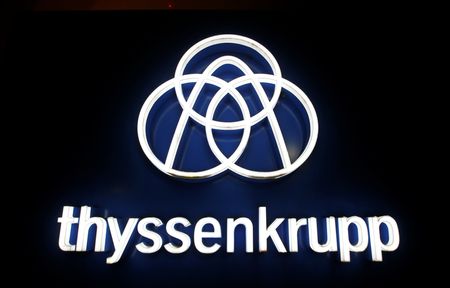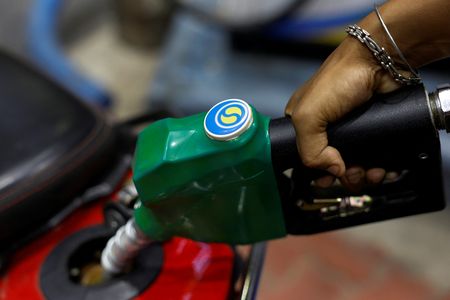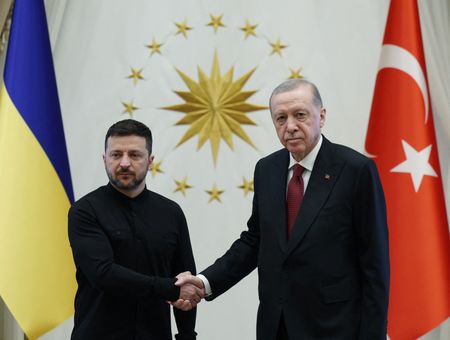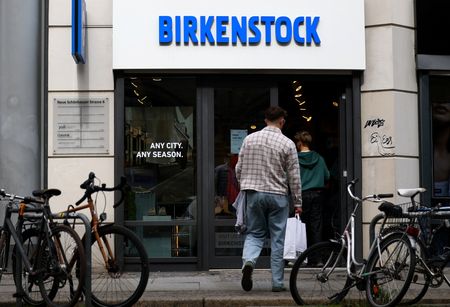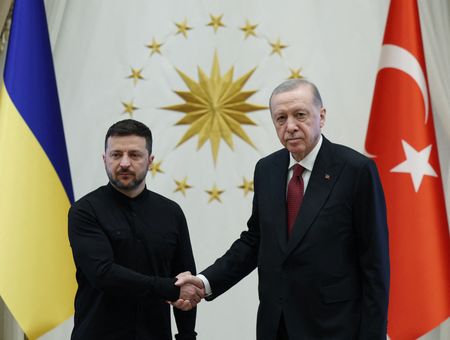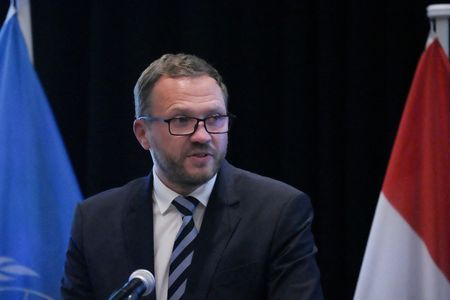By Christoph Steitz and Tom Käckenhoff
FRANKFURT/DUESSELDORF (Reuters) – Thyssenkrupp’s <TKAG.DE> operating profit plunged in the second quarter, hurt by what the German conglomerate said was high economic uncertainty among most of its customers and regions due to higher tariffs, notably in automotive and steel.
Shares in the submarines-to-car parts group were 9.8% lower at 0811 GMT following a 90% drop in quarterly adjusted EBIT to 19 million euros ($21 million), far below the 146 million euro average forecast in a poll provided by the company.
Thyssenkrupp, through its sprawling global structure that also covers materials trading and hydrogen, is exposed to global trade frictions and on Thursday warned that tariffs would negatively impact global automotive production in 2025.
Outgoing CFO Jens Schulte said that Thyssenkrupp had so far been able to pass on current U.S. import tariffs to clients in its automotive business, but noted that the situation was expected to remain challenging.
CEO Miguel Lopez said that the group expected to see more inflows of cheap Asian steel into Europe due to U.S. tariffs, adding it was too early to comment on the fallout.
“The introduction of universal import tariffs and individual customs tariffs for major trading partners like the EU and China are having a negative impact on global trade and destabilising international supply chains,” the group said.
Thyssenkrupp’s steel division, in which Czech billionaire Daniel Kretinsky owns 20%, swung to a 23-million-euro loss, compared with a 68-million profit last year, also hit by maintenance-related outages.
The German conglomerate said it still expects adjusted operating profit (EBIT) of 600 million to 1 billion euros and free cash flow before M&A of between 0 and 300 million euros.
Second-quarter adjusted EBIT at the group’s submarine division, which is currently being prepared for a spin-off later this year, rose 24% to 31 million euros.
($1 = 0.8934 euros)
(Reporting by Christoph Steitz and Tom Kaeckenhoff; Editing by Lisa Shumaker, Rachel More and Louise Heavens)

